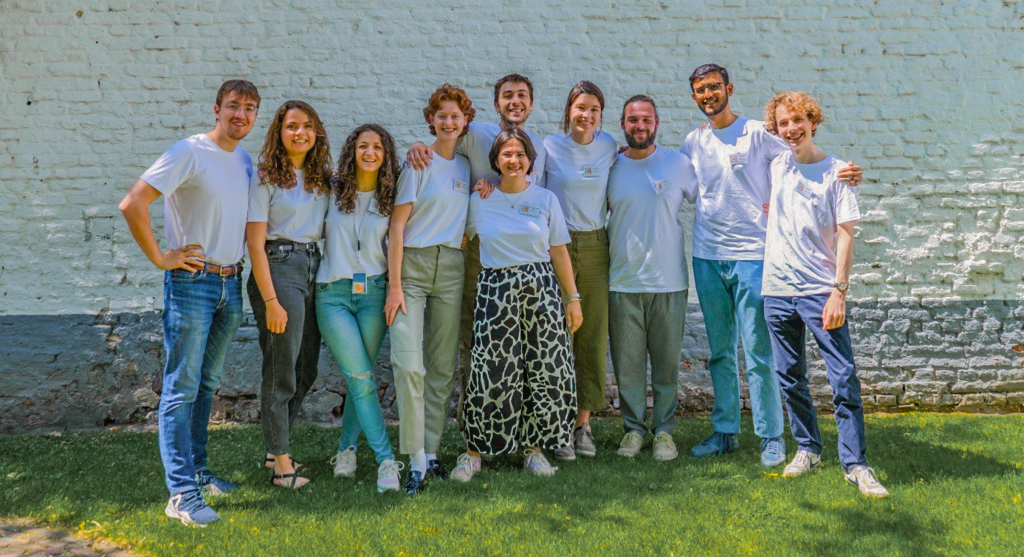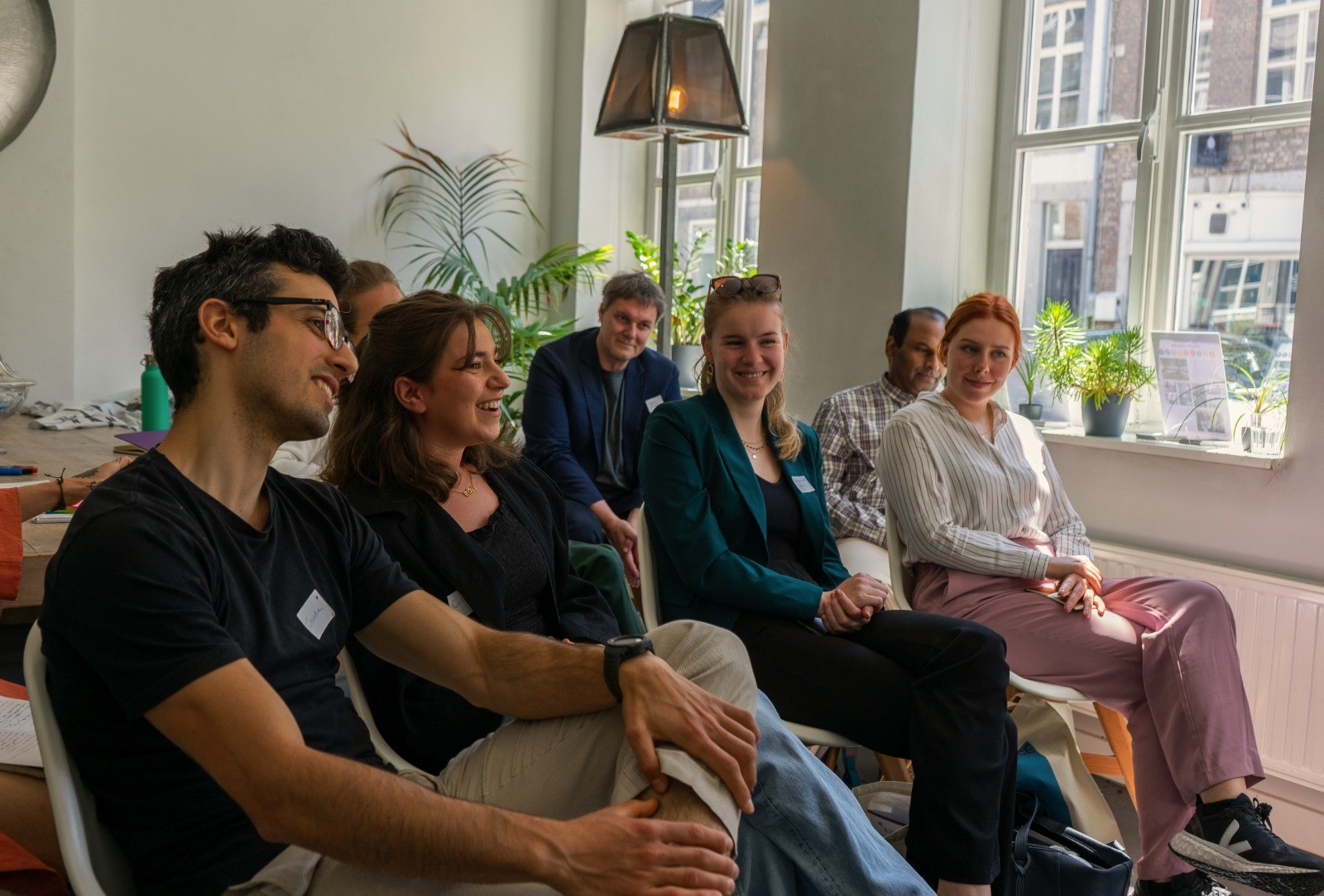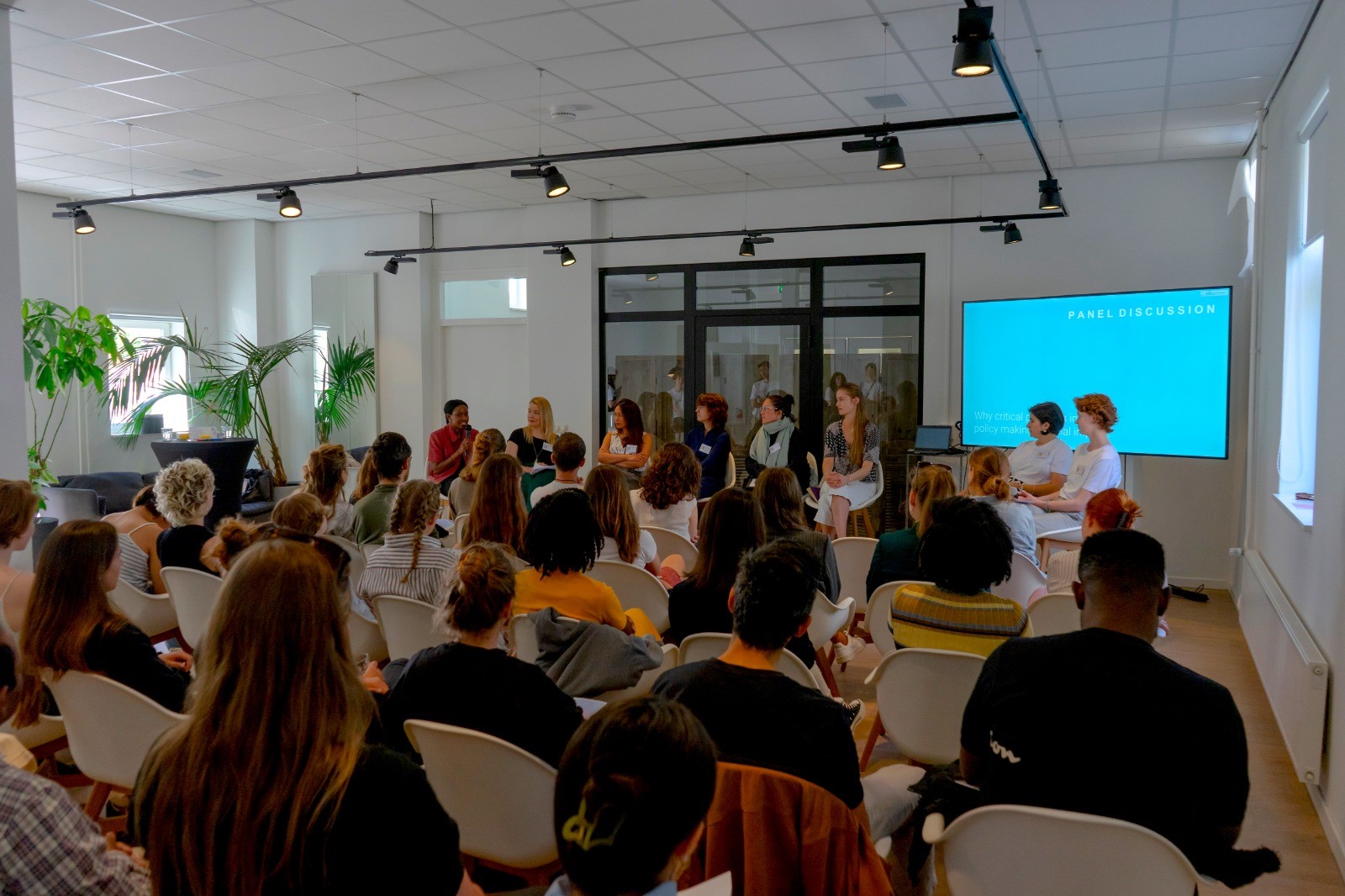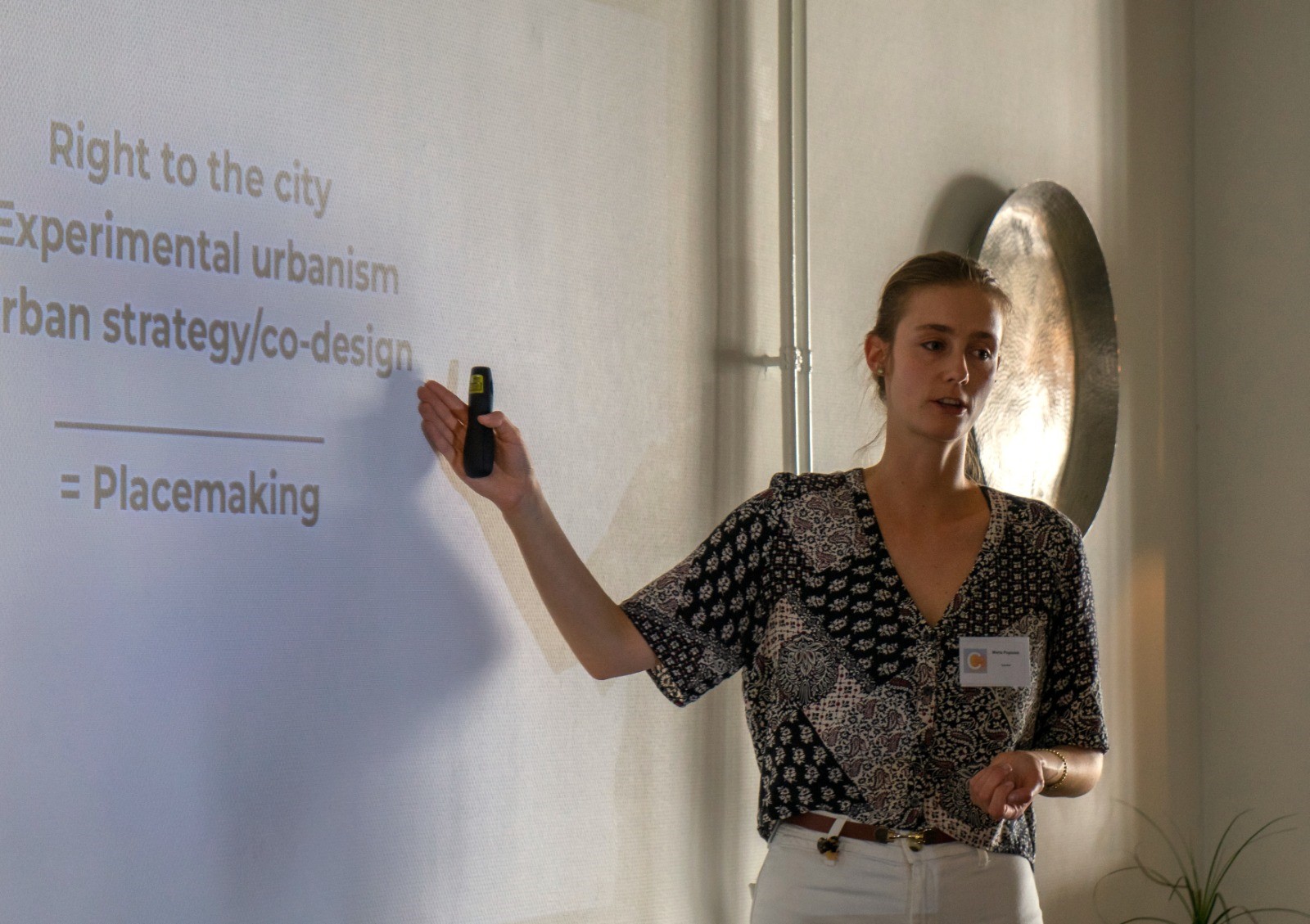Here’s what happened at the first Critical Policy Conference
A guest post by Vincent Tadday, Global Studies student at Maastricht University

To effect real change in policy and create social impact by way of re-imagination processes and dialogue, a new student-led initiative has emerged: the Critical Policy Lab.
On Saturday 3 June 2023 in Maastricht, the first edition of the Lab’s Critical Policy Conference welcomed around 70 participants from UNU-MERIT and Maastricht University communities and beyond for a day full of workshops and discussions, ranging from rethinking development collaborations to changing the paradigms of urban governance. With support from the Diversity & Inclusivity (D&I) Grant from Maastricht University, the university’s Global Citizenship Education (GCEd) Grant and the Universiteitsfonds Limburg (SWOL), the Conference brought together scholars and practitioners who shared valuable insights on how to unpack and re-imagine approaches in policymaking and social impact.
The day in a nutshell
In the morning, Margit van Wessel, an assistant professor at Wageningen University, talked about her most recent book on re-centring civil society collaborations in development, offering Global South-centred ways of understanding and developing relations, roles and processes. Meanwhile, UNU-MERIT alumni Chibuye Changwe explored social and political tensions in migration policymaking beyond the EU and challenged the notion that policy recommendations provide simple solutions. Cassie Robinson, who works across a variety of philanthropic institutions, shared her work in growing “Imagination Infrastructures” in a UK context and how her work influences community policymaking and collective action.
The afternoon was kicked off by Juliëtte Boughouf and Isabelle Hommes, who introduced the THRIVE Institute and their work on the “purpose economy,” while Shirleen Chin coached the participants in advocating for change in multilateral settings.
The day ended for the participants with a choice between a hands-on experience led by Marta Popiołek from Placemaking Europe, through which participants explored the fundamental principles that make up successful urban places and how to evaluate their qualities, or a workshop by Helen Wishart, an expert on intersectional feminism, who discussed minimum standards for intersectional approaches in the NGO sector.
What’s next?
The first edition of the Critical Policy Conference was a great success. Liza Gordin, founder of the Critical Policy Lab, reflected, “I have organised conferences before, but it rarely ever happened that the resonance of speakers and participants was so positive, even euphoric.”
The team is currently looking into various options to build a platform for alternative policy-making approaches and new collaborations for expanding the initiative. Stay tuned to the Lab’s social media for updates: follow us on Instagram and LinkedIn!

Organising team from left to right: Vincent Tadday, Felizia Pasteiner, Paola Guglielmi, Dana Feijen, Sophia Yazdani Biuki, Davide Manzoni, Liza Gordin, Felix Märtin, Arsh Ajmera and Leonard Paul.
The team members behind the Critical Policy Conference included UNU-MERIT master’s students Liza Gordin, Davide Manzoni, Paola Guglielmi, Arsh Ajmera, Felix Märtin, Felizia Pasteiner, Leonard Paul, and Maastricht University BSc Global Studies students Dana Feijen, Sophia Yazdani Biuki and Vincent Tadday.
ANY COMMENTS?
MEDIA CREDITS
Photos by the Critical Policy Conference organising team







